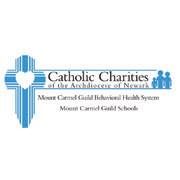Rutgers - UBHC - Psychiatric Hospital
Drug Rehab Center in Newark, New Jersey
- Mental Health
- Dual Diagnosis
Rutgers-UBHC is a psychiatric hospital and addiction treatment facility in Newark, NJ that offers comprehensive and evidence-based rehab services for individuals with dual diagnosis and mental health issues, including outpatient and dual-diagnosis levels of care, medication management programs, and support for families.
About Rutgers - UBHC - Psychiatric Hospital in New Jersey
Rutgers - UBHC - Psychiatric Hospital in Newark, New Jersey is a comprehensive treatment facility for individuals seeking recovery from addiction and mental health issues. As a dual diagnosis, mental health treatment facility, Rutgers - UBHC provides specialized care for individuals who are suffering from both addiction and co-occurring mental health disorders. Located in Newark, their outpatient facility offers a supportive and therapeutic environment for individuals on their journey towards sobriety. With a focus on dual diagnosis treatment, Rutgers - UBHC aims to address the underlying causes of addiction and provide individuals with the necessary tools and skills to maintain long-term recovery.
Rutgers - UBHC - Psychiatric Hospital offers various types of services and treatment methods to address addiction and substance abuse. They provide outpatient care, which allows individuals to receive treatment while still being able to maintain their daily responsibilities and routines. Their dual-diagnosis approach integrates mental health treatment with addiction recovery, ensuring that the underlying mental health issues are also addressed. Rutgers - UBHC utilizes evidence-based treatments such as cognitive-behavioral therapy (CBT) and motivational interviewing to help individuals overcome addiction and develop healthy coping mechanisms. Additionally, they offer support groups and individual counseling to provide a comprehensive treatment experience for their clients. Overall, Rutgers - UBHC - Psychiatric Hospital is committed to providing personalized care to individuals seeking treatment for addiction and mental health concerns.
Genders
Ages
Modality
Additional
Conditions and Issues Treated
Dual Diagnosis is a specific relationship between two or more disorders that have the same symptoms and can sometimes be treated together. This is used in the treatment planning process when dealing with drug addicts. Dual diagnosis can be viewed as a chronic medical condition that has comorbid psychiatric disorders.
Although addiction and a mental illness may have separate symptoms that are not easy to detect, they often go hand in hand. Many times, drug abuse is a direct result of the mental illness. In other words, treating the addiction will not resolve all of your issues. Unless you also treat the underlying mental illness, you will not be successful in achieving sobriety.
Levels of Care Offered
This center offers a variety of custom treatment tailored to individual recovery. Currently available are Dual-Diagnosis, Outpatient, with additional therapies available as listed below.
An outpatient treatment program is set up to help with alcohol or drug addiction, or a co-occurring disorder. The patient must attend the New Jersey facility for their therapy and other programs but are able to return home each night. The frequency of mandatory attendance decreases after much of Rutgers - UBHC - Psychiatric Hospital‘s program is complete.
Therapies & Programs
Group Therapy is utilized by drug treatment centers like Rutgers - UBHC - Psychiatric Hospital to provide the recovering drug addict with a platform to talk about their feelings and experiences. It also provides for an opportunity to learn from other addicts who have successfully overcome their addiction.
Group Therapy is employed in lectures, seminars, or discussion groups (the latter two are typically conducted as “therapy groups”). It is recommended that all group members be recovering addicts for this type of therapy to work (though it does not exclude others with lived experience).
Trauma therapy is a clinical process that helps individuals deal with mental stress often caused by traumatic events. It is generally done for children, teenage victims of sexual assault, and war veterans. The therapist helps the person identify, understand and work through the problem. This is done with the help of talking about it in group or one-on-one counseling sessions. Therapists use relaxation, role-playing, art, and music to help the person open up about what is bothering them.
Dialectical Behavior Therapy (DBT) is used by drug treatment centers across the United States to help drug addicts become sober. DBT combines traditional behavioral treatments with elements from DBT, including dialectics, distress tolerance, and interlocking issues. It is commonly used to treat Borderline Personality Disorder (BPD) along with substance abuse disorders. The four DBT modules are mindfulness, interpersonal effectiveness, emotion regulation, and distress tolerance.
Nutrition therapy has been used to help drug addicts for decades. Many early reports on addiction treatment indicate that some patients recovered from the “satisfying power of food”. For years, this phenomenon has been utilized as a treatment modality in eating disorders for adults, adolescents, and children. Specific nutrients have been identified that influence neurotransmitters associated with reward pathways of the brain.
Studies have shown that carbohydrate loading with complex carbohydrates to elevate serotonin levels was effective in treating bulimia nervosa. This approach prompted researchers to explore the use of this type of nutritional intervention in other disorders.
Nicotine replacement therapy treats nicotine addiction using external sources of nicotine, such as patches or gum to substitute for nicotine. This allows people trying to quit smoking to get their desired dose of nicotine without actually having to smoke cigarettes. The idea behind NRT is that by providing smokers with nicotine in forms that are not cigarettes, they may be more likely to quit smoking.
NRT has been available for many years now, and there is a wealth of evidence that shows that it helps people trying to quit smoking. There are several different types of NRT devices on the market now. Patients interested in quitting smoking should talk to their doctors about the best kind of NRT for them.
Patient Experience
Experiential Therapy at Rutgers - UBHC - Psychiatric Hospital
Experiential therapy is another form of treatment that helps addicts overcome their addiction. This type of service typically involves hands-on activities with the focus on physical experiences instead of emotions or beliefs.
Some examples include art therapy, equine therapy and music therapy. Each of these forms of experiential therapy can provide unique ways for addicts to channel their feelings and work through their demons. This type of therapy also allows addicts to develop meaningful emotional connections with others, which can prevent them from resorting to relapse as a coping mechanism.
Payment Options Accepted
For specific insurance or payment methods please contact us.
Additional Details
Specifics, location, and helpful extra information.
Newark, New Jersey 7103 Phone Number(973) 972-5479 Meta DetailsUpdated November 25, 2023
Staff Verified
Rutgers - UBHC - Psychiatric Hospital Patient Reviews
There are no reviews yet. Be the first one to write one.
Newark, New Jersey Addiction Information
The state of New Jersey is afflicted by the rising opioid overdose crisis and the increase in the number of residents engaging in illegal substance abuse. 90% of the 2,900 drug overdose deaths in New Jersey involved opioids in 2018. Over 1.1 million New Jersey residents reportedly use drugs in a given year. High prevalence of drug and alcohol abuse caused 14% of all deaths in the state between 2008 and 2017.
8% of people in Newark, NJ, have had to deal with drug or alcohol addiction. Cocaine use has been on the rise in Newark recently. There were over 1,400 overdose deaths from opioids in New Jersey in 2016. Around half a million people have been killed by drug overdose over the last decade. A few different types of treatment are available in Newark including outpatient care, inpatient rehab, and detox.
Treatment in Nearby Cities
- Egg Harbor Township, NJ (96.5 mi.)
- Summit, NJ (9.3 mi.)
- Ridgefield, NJ (11.5 mi.)
- Ringwood, NJ (26.0 mi.)
- Margate City, NJ (99.0 mi.)
Centers near Rutgers - UBHC - Psychiatric Hospital




The facility name, logo and brand are the property and registered trademarks of Rutgers - UBHC - Psychiatric Hospital, and are being used for identification and informational purposes only. Use of these names, logos and brands shall not imply endorsement. RehabNow.org is not affiliated with or sponsored by Rutgers - UBHC - Psychiatric Hospital.




